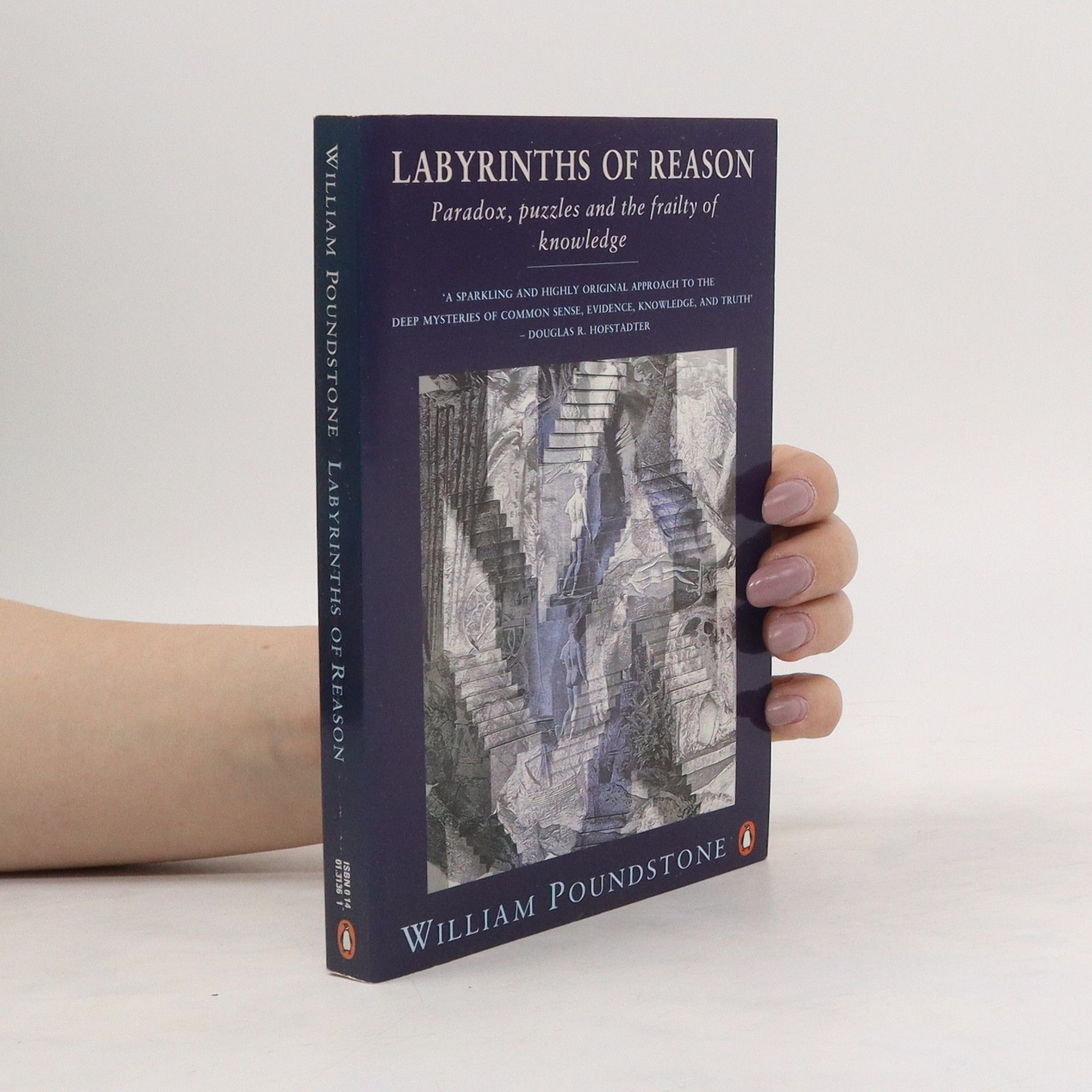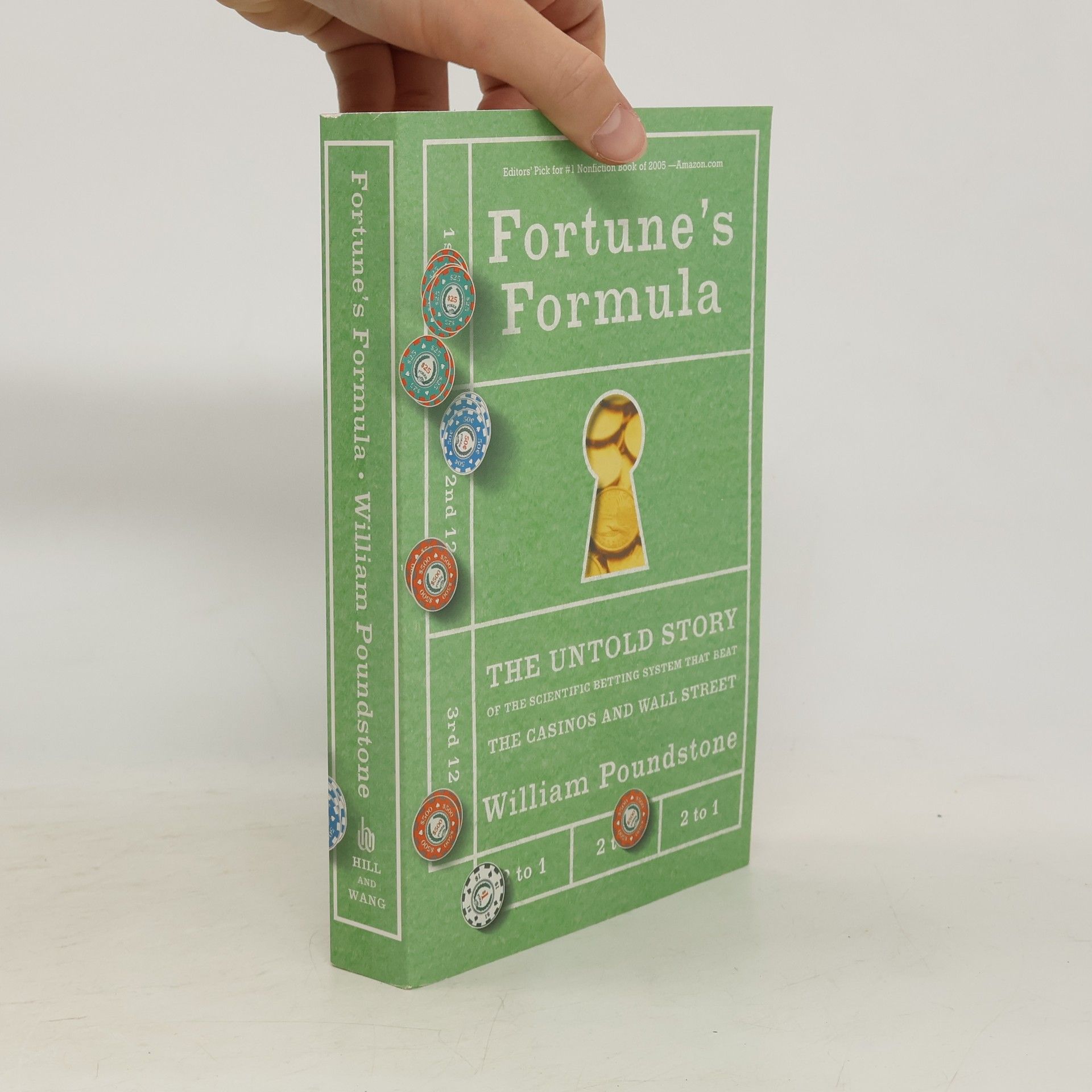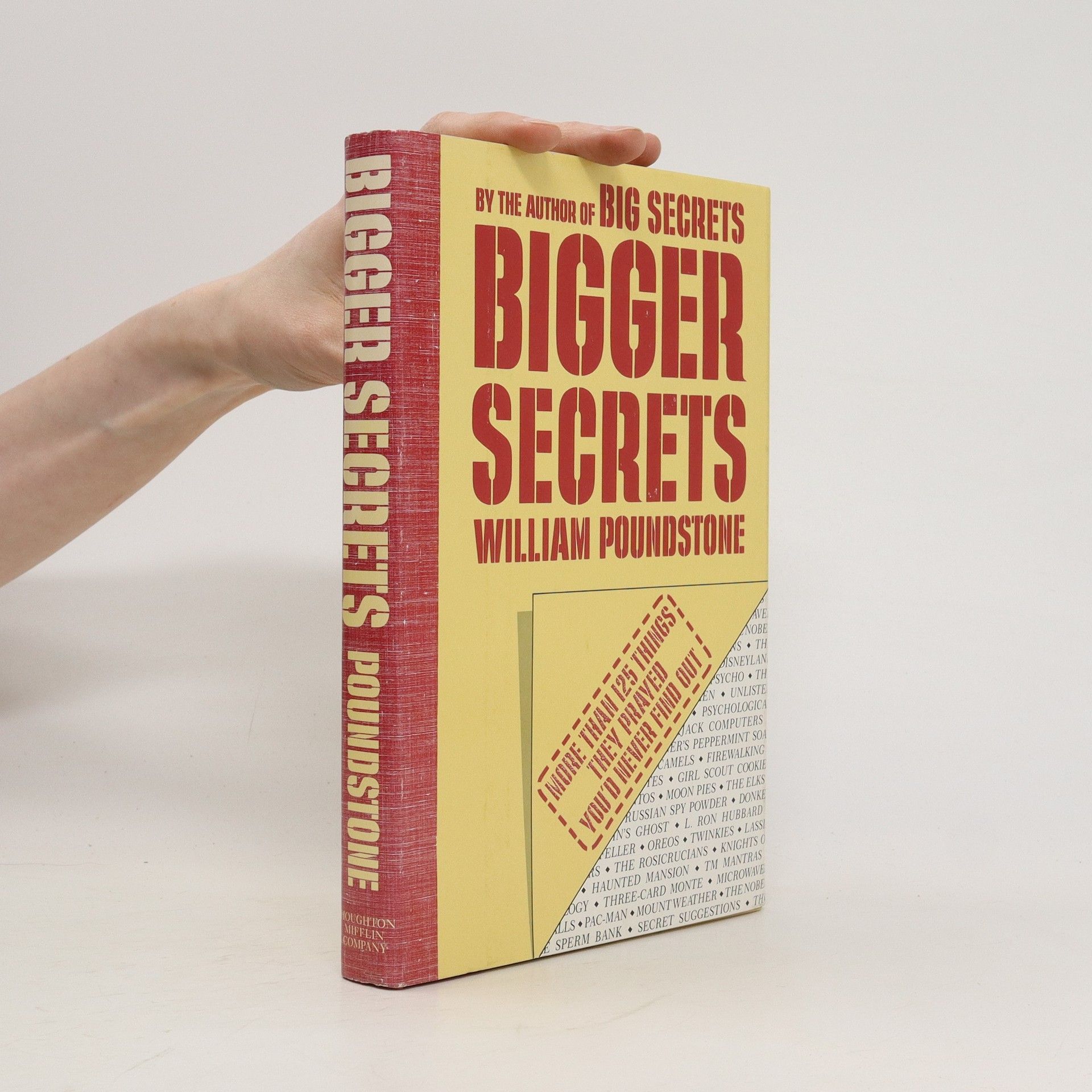Bigger Secrets
- 244pages
- 9 heures de lecture
A remarkable compilation of inside information, confirming the uncensored truth about some of America's top secrets, from the important to the amusing. Follows the success of Poundstone's Big Secrets.
William Poundstone élabore des essais qui explorent l'interaction captivante entre la découverte scientifique et ses conséquences sociales et financières. Ses travaux, traduits dans de nombreuses langues, examinent les complexités du comportement humain et de la prise de décision avec un intellect vif et une analyse perspicace. Poundstone est réputé pour son style pénétrant, capable de rendre des concepts complexes accessibles à un large lectorat. Son écriture suscite la réflexion et offre des perspectives nouvelles sur le monde.






A remarkable compilation of inside information, confirming the uncensored truth about some of America's top secrets, from the important to the amusing. Follows the success of Poundstone's Big Secrets.
The Untold Story of the Scientific Betting System That Beat the Casinos and Wall Street
In 1956 two Bell Labs scientists discovered the scientific formula for getting rich. One was mathematician Claude Shannon, neurotic father of our digital age, whose genius is ranked with Einstein's. The other was John L. Kelly Jr., a Texas-born, gun-toting physicist. Together they applied the science of information theory—the basis of computers and the Internet—to the problem of making as much money as possible, as fast as possible.Shannon and MIT mathematician Edward O. Thorp took the "Kelly formula" to Las Vegas. It worked. They realized that there was even more money to be made in the stock market. Thorp used the Kelly system with his phenomenonally successful hedge fund, Princeton-Newport Partners. Shannon became a successful investor, too, topping even Warren Buffett's rate of return. Fortune's Formula traces how the Kelly formula sparked controversy even as it made fortunes at racetracks, casinos, and trading desks. It reveals the dark side of this alluring scheme, which is founded on exploiting an insider's edge.Shannon believed it was possible for a smart investor to beat the market—and Fortune's Formula will convince you that he was right.
This book explores what paradox has to tell us of the nature of thought and reality, from the prisoner's dilemma to the thesis that the universe is a computer and from Schrodinger's cat to Searle's Chinese room.
A fascinating biography of the dazzlingly brilliant Hungarian mathematician--considered by many to be the greatest genius of the 20th century--Prisoner's Dilemma tells the story of John Von Neumann, the inventor of the digital computer and key player in the invention of the atom bomb. Photographs.
How to tackle the toughest interview questions Facebook, Amazon, Apple, Netflix and Google have to offer - and other perplexing problems to puzzle any mind!
The real-world value of knowledge in the mobile-device age. More people know who Khloe Kardashian is than who Rene Descartes was. Most can't find Delaware on a map, correctly spell the word occurrence, or name the largest ocean on the planet. But how important is it to fill our heads with facts? A few keystrokes can summon almost any information in seconds. Why should we bother learning facts at all? Bestselling author William Poundstone confronts that timely question in HEAD IN THE CLOUD. He shows that many areas of knowledge correlate with the quality of our lives--wealth, health, and happiness--and even with politics and behavior. Combining Big Data survey techniques with eye-opening anecdotes, Poundstone examines what Americans know (and don't know) on topics ranging from quantum physics to pop culture. HEAD IN THE CLOUD asks why we're okay with spelling errors on menus but not on resumes; why Fox News viewers don't know which party controls Congress; why people who know "trivia" make more money than those who don't; how individuals can navigate clickbait and media spin to stay informed about what really matters. Hilarious, humbling, and wildly entertaining, HEAD IN THE CLOUD is a must-read for anyone who doesn't know everything.
The uncensored truth about all sorts of stuff you are never supposed to know. Learn the answers to hundreds of questions such as . . . What's the best way to beat a lie detector test? What's really in Spam?, Coca-Cola, the secret recipe for Mrs. Field's Cookies? What's the meaning behind all those seemingly meaningless doodles of graffiti? What's the truth behind the rumor of Walt Disney being cryogebnically frozen and hidden in a secret vault benath Disneyland? . . . and many, many more.
A practical guide to outguessing everything from multiple-choice tests to the office football pool to the stock market. People are predictable even when they try not to be. William Poundstone demonstrates how to turn this fact to personal advantage in scores of everyday situations, from playing the lottery to buying a home. ROCK BREAKS SCISSORS is mind-reading for real life. Will the next tennis serve go right or left? Will the market go up or down? Most people are poor at that kind of predicting. We are hard-wired to make bum bets on "trends" and "winning streaks" that are illusions. Yet ultimately we're all in the business of anticipating the actions of others. Poundstone reveals how to overcome the errors and improve the accuracy of your own outguessing. ROCK BREAKS SCISSORS is a hands-on guide to turning life's odds in your favor.
Revealing how everday pricing manipulates us.
From the author of Are You Smart Enough to Work at Google?, a fascinating look at how an equation that foretells the future is transforming everything we know about life, business, and the universe. In the 18th century, the British minister and mathematician Thomas Bayes devised a theorem that allowed him to assign probabilities to events that had never happened before. It languished in obscurity for centuries until computers came along and made it easy to crunch the numbers. Now, as the foundation of big data, Bayes' formula has become a linchpin of the digital economy. But here's where things get really interesting: Bayes' theorem can also be used to lay odds on the existence of extraterrestrial intelligence; on whether we live in a Matrix-like counterfeit of reality; on the "many worlds" interpretation of quantum theory being correct; and on the biggest question of all: how long will humanity survive? The Doomsday Calculation tells how Silicon Valley's profitable formula became a controversial pivot of contemporary thought. Drawing on interviews with thought leaders around the globe, it's the story of a group of intellectual mavericks who are challenging what we thought we knew about our place in the universe. The Doomsday Calculation is compelling reading for anyone interested in our culture and its future.